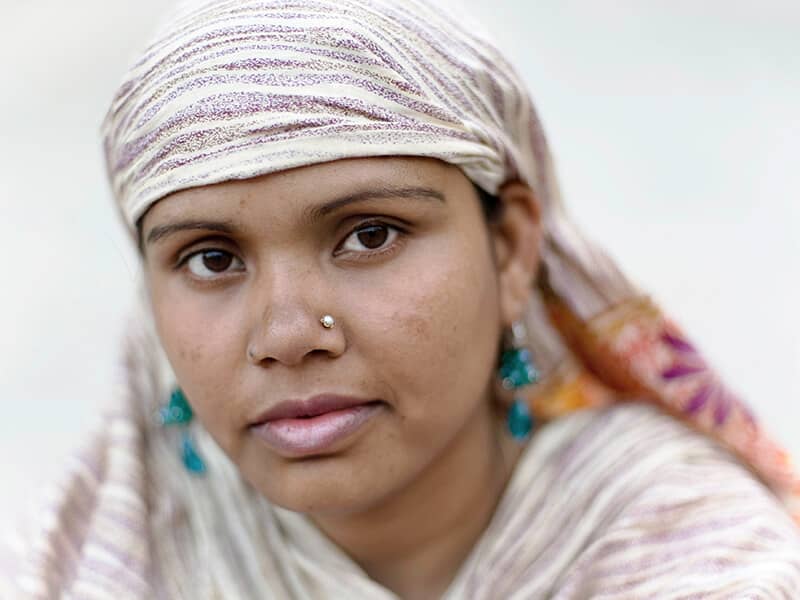Here was a woman born when female infants were often buried alive and women were treated as chattel. Yet God gave her extraordinary character and superior business acumen. She became the richest merchant in all of Mecca and was hailed as the Princess of Mecca and the Princess of the Quraysh. She was also given the title of Al-Tahira, The Pure One, for her humanitarian efforts in aiding the poor, widows, orphans, the sick and disabled.
Khadija was wealthy and accomplished--but also twice widowed and 40 years old--when she married the future Prophet of Islam, 15 years her junior. She had immediately recognized his trustworthiness and high moral standards and had taken it upon herself to propose to him. He readily accepted.
Khadija's story gave me hope as I married recently, at age 29, to a man much younger than me. It also did not hurt that I met my husband during the month of Ramadan, which made me think that, like Khadija, I might be entering into a match made in heaven.
The marriage of Khadija and Muhammad is a model for all Muslims. It was one of extraordinary love, commitment and mutual respect. It is arguably one of the greatest love stories of all times and a prelude to Islam's humanistic beginnings.
Muhammad's first encounter with God's revelation had been terrifying for him. He came home shaking with terror at the magnitude of what he had experienced. He beseeched Khadija, "Cover me, cover me!" And she shielded him immediately in her lap, listened to his account and assured him of his prophethood. She recounted to him the excellence of his character as reason that God could not have turned against him.
Muhammad once said of Khadija, "She believed in me when all others disbelieved; she held me truthful when others called me a liar; she sheltered me when others abandoned me; she comforted me when others shunned me; and Allah granted me children by her while depriving me of children by other women."
Khadija bore the Prophet six children. She was also the first Mother of the Believers, a designation given to all the wives of the Prophet in the Qur'an. Her marriage to Muhammad was monogamous and so she alone was privileged with the title until the end of her life. She never once let the believers down. When the growing community of new Muslims were ridiculed, tortured, disenfranchised, deprived of their pay and ostracized from their families, Khadija used her resources to make sure they were clothed, fed and sheltered.
The woman who had once owned herds of animals, priceless heirlooms, silver, gold and so much more was buried in one of the Prophets own garments because there was not enough money left to buy her a shroud. Such was the measure of her faith that she had given all she had for the cause of Islam.
Khadija died during the month of Ramadan, the same month the Qur'an was revealed to the Prophet Muhammad, the same month that we as Muslims fast today to learn generosity, self-restraint and compassion--while becoming closer to God. What we strive to be came easily for this remarkable woman.
So compelling was her "maternal imprint" on the success of the community that the Prophet Muhammad considered her one of the four most perfect women in all of human history along with Maryam (Mary), the mother of Isa (Jesus); Asiya, the wife of Pharaoh; and Fatima, his daughter.
Of all the famous women throughout the history of Islam, the scholars, warriors, mystics, poets, rulers, benefactors, politicians and onward, it is thus understandable then that I am most inspired by the story of Khadija.
For without Khadija they could not have been, nor could Islam have come through. As Karen Armstrong writes, "Islam can be said to have come to birth in the arms of a loving woman." Khadija was the closest companion to the Prophet throughout their marriage. She was the first to accept his message and bear witness to the Oneness of God and that Muhammad was His messenger, thus making her the first Muslim convert and believer. She had sacrificed her great wealth to finance the new Muslim mission.
That God placed a woman in this position and employed her as the vessel through which Muhammad was not only comforted, from the time of the first revelation, but also assured that he was indeed a prophet and Messenger of God, is a testament to the role of women in the spread of Islam.
As a believing woman, I am convinced that Khadija was given such a conspicuous role in the advent of this religion so that there could never be a mistake about Islam's intention toward women and its deference for the depth of their intellect, the scope of their piety and the possibilities for their humanity.
Beautifully human, beautifully woman, beautifully Muslim, as Khadija was I strive to be.

